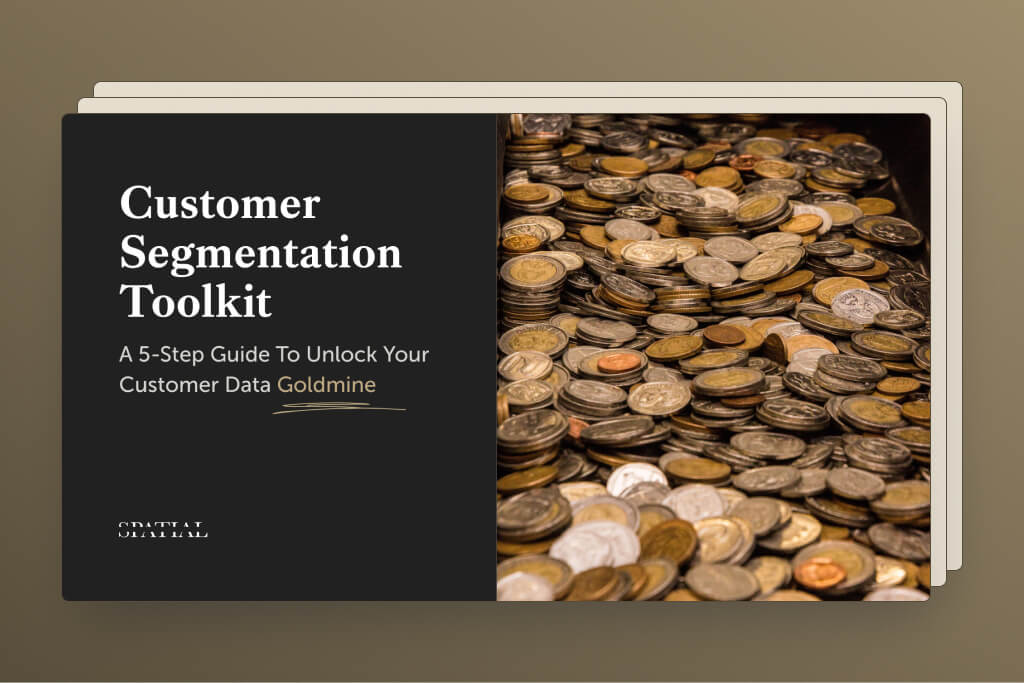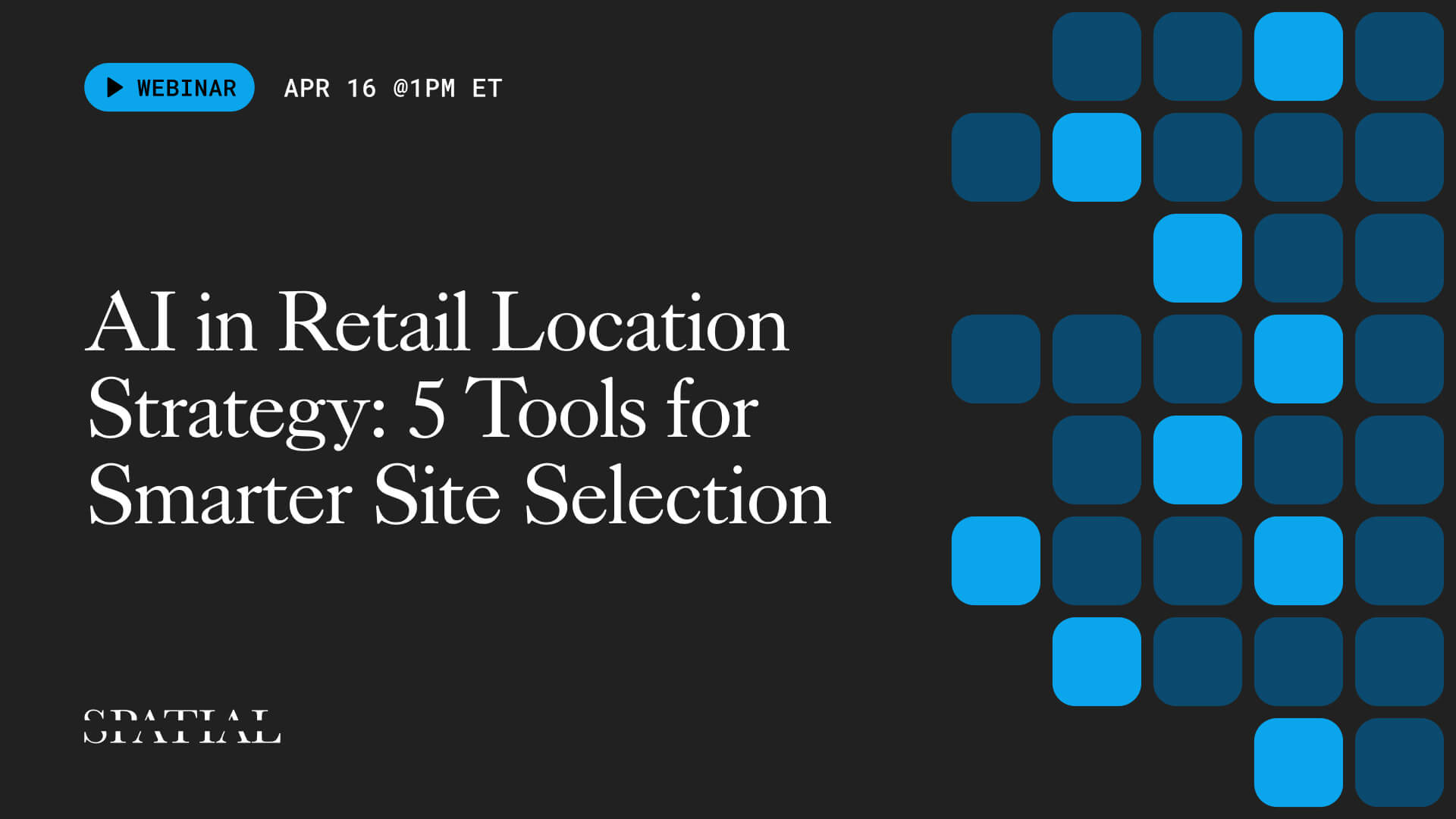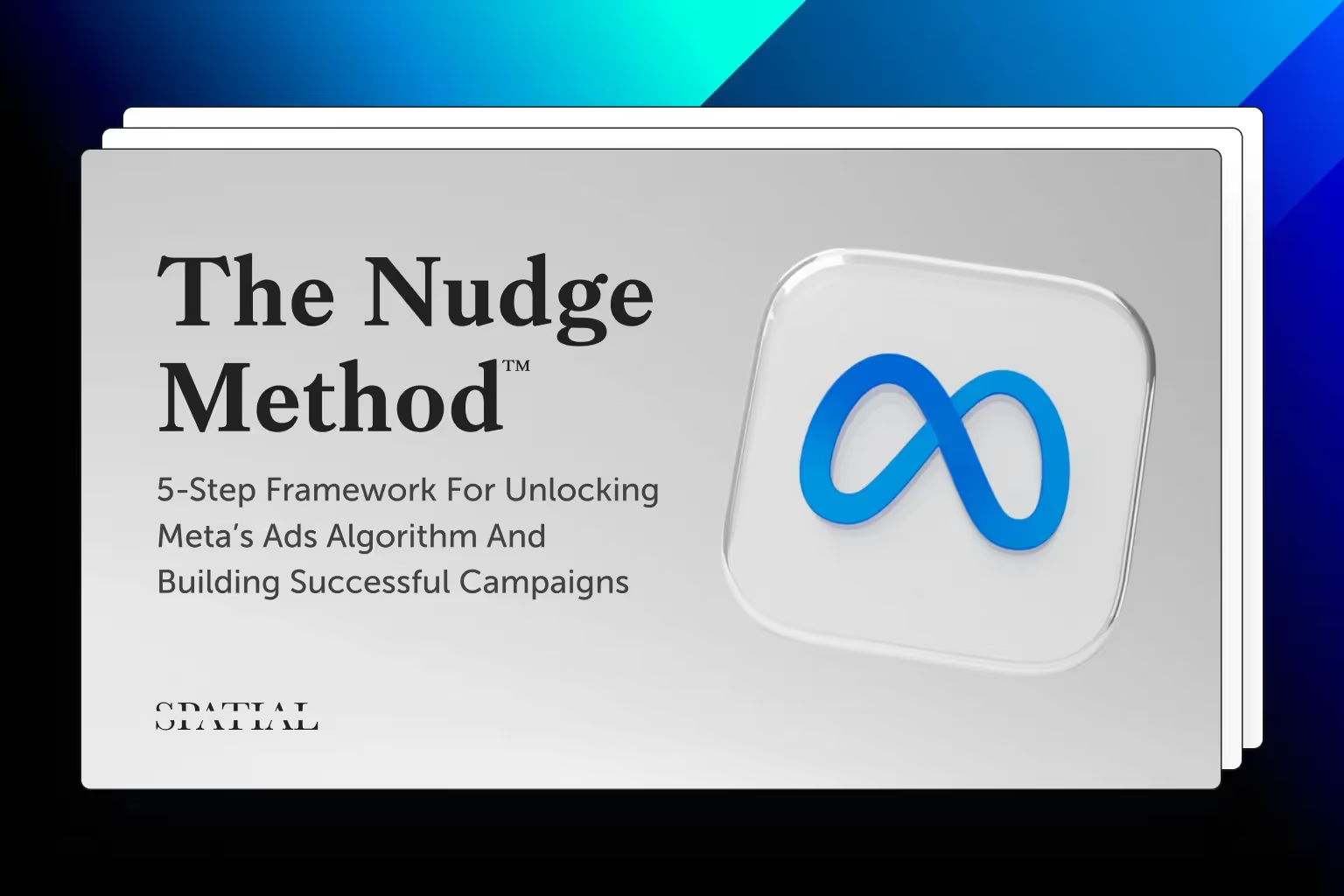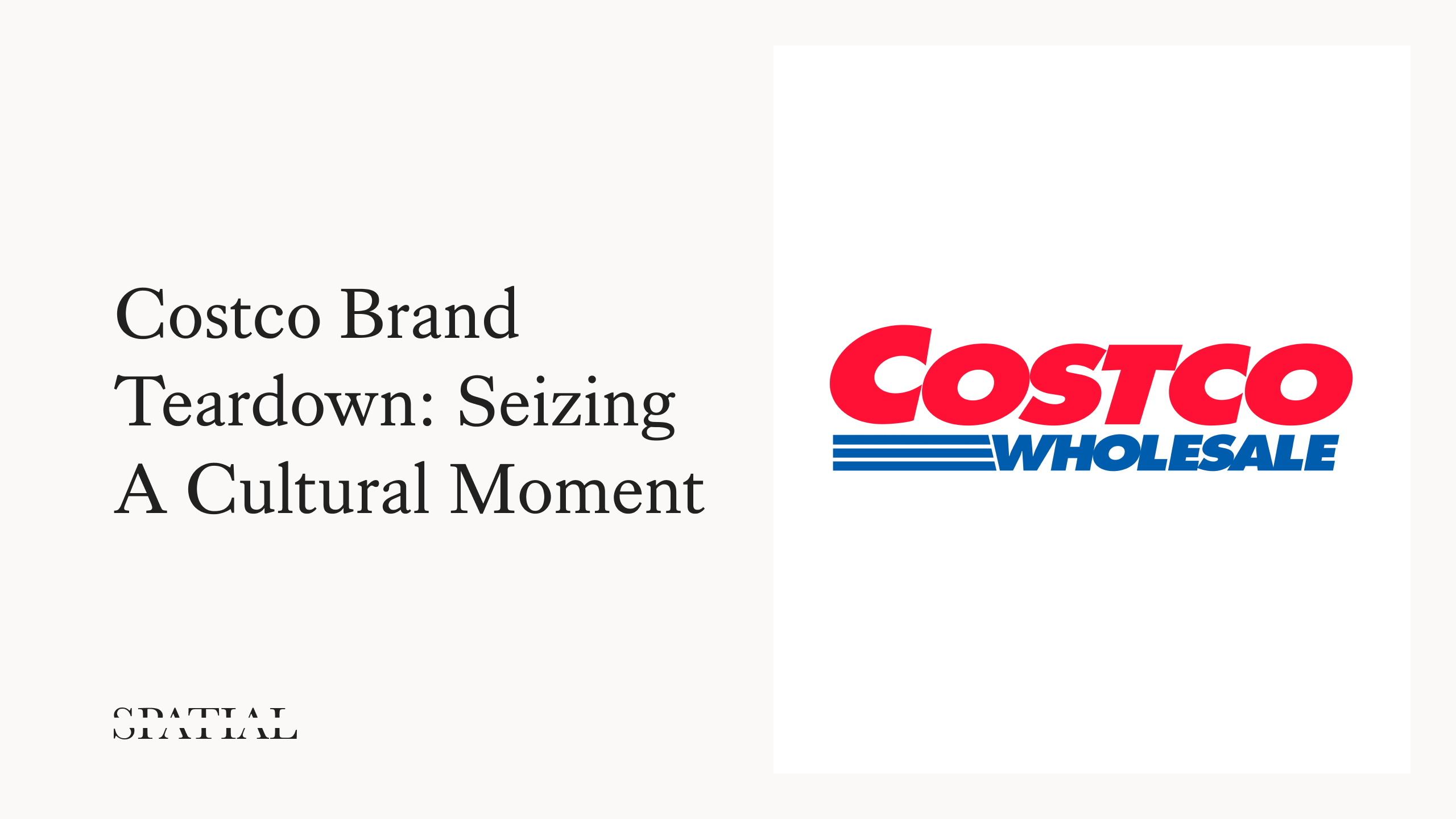20 Stunning Geosocial Solutions In 2020
It has been nearly two years since Spatial.ai released the Geosocial dataset. Since then we have continued to invest in highlighting social behaviors of neighborhoods. But what makes us truly excited is to see the stunning ways Geosocial data has been put to use by our partners.
In 2020 our partners pushed the boundaries of Geosocial, especially in light of the massive social changes due to COVID. This year we saw more amazing solutions brought to market than ever:
- Profile customers coming to your location?
- Homebuyers finding the right neighborhood?
- On-the-fly website customization based on the visitor's segment?
- Predict sales of a retailer in one button click?
- Explore county COVID sentiment over time?
- Ad-target hipsters in Brooklyn?
All of it! It is inspiring to see, so we wanted to shout out a few of our favorites.
Coria: Pulse.app
We love how easy it is to understand visitors and personalize websites on the fly with the pulse.app. Connect Google Analytics to the pulse.app and see who is visiting your website, reading your blog posts, and buying your products.

SiteZeus: Customer Segmentation Dashboard
Akin to how Coria segments web traffic, SiteZeus became the first company to segment physical store visitation by Geosocial segment. By combining Ubermedia’s store visitation data with the Geosocial data, brands like Subway, Kroger, and Inspire Brands get a profile of customers unique to each location.


Keller Williams Home Search: “What Locals Say”
Low interest rates brought on a real estate boom and Keller Williams capitalized on people’s desire to find communities that fit their interests. Every listing and neighborhood comes with tags identifying what locals are talking about on social media.

SiteZeus: Sales Forecasting
Many companies use Geosocial for predictive analytics, but no one does it quite like SiteZeus. Drop a pin and get a sales forecast for your retail or restaurant brand in seconds. One thing we especially like is how you can clearly see which variables are impacting the model.

7Park: Neighborhood Similarity Index
Want to know the neighborhoods most similar to Brooklyn in every city? 7Park “thumbprints” neighborhoods based on their social markers. They also combine Geosocial with other datasets for commercial real estate insights. For example, they found a 65% increase in mentions of “pets” in New York City neighborhoods during the COVID-19 lockdown, which coincided with an increase of 70% of chewy.com sales in NYC.

TSCG Analytics: Geodemographic + Geosocial Analysis
As GIS and analytics masters, the TSCG team has many uses of Geosocial data. One of them (featured in Esri ArcNews Magazine) combined a Geodemographic segmentation (Tapestry) with Geosocial to identify uniquely suited locations for a high-end thrift retailer.

Ubermedia COVID Social Distancing
Ubermedia created a social distancing metric with mobile movement data to measure an area's compliance with stay at home orders. Pairing the social distancing metric with Geosocial, they discovered areas that had higher amounts of socially distanced activities (Yoga Advocates, Outdoor Adventures) were better at social distancing than areas with people that tended to be more outgoing (Party Life, Family Time).

DataStory COVID-19 Social Sentiment
In response to COVID-19, Spatial.ai released a free dataset that measures social sentiment related to COVID-19 at a county level. What Gideon Singer and Josh Runaldue at DataStory did with the dataset impressed us. Using Esri technology, they built a map layer showing the percentage of positive/negative/neutral social posts. They then plotted the information over time and created a word cloud in the shape of the county indicating what people were talking about.

Ford: Corktown Urban Planning
After purchasing the famously abandoned Michigan Central Station in the Corktown neighborhood, Ford announced they would move up to 5,000 salaried workers into a traditionally low-income area. Spatial.ai worked with the smart mobility team to use the two community’s common social interests to create retail experiences that would facilitate connection.

Subway: Geomarketing
One of the most simple but effective uses of Geosocial came from Subway, who simply noticed high “Late-Night Leisure” activity around a number of their locations and kept doors open an hour later. This simple change resulted in a 10% increase in sales above baseline.

Adsquare: Proximity Targeting
Adsquare integrated Geosocial as a key component to their Proximity Targeting solution, which sends mobile ads to users in real time, in the right place. For example, showing hipster inspired ads in a Hipster neighborhood, or a pet-related ad when a device is in a block group with high “Dog Lovers” social activity.

Piinpoint: Geosocial Segmentation
Piinpoint’s beautiful visual integration and searchability makes it easy to explore and compare neighborhoods as well as see which brands fit best in each neighborhood. They also released a free ebook for how to plan for retail recovery using a number of both new and familiar datasources.

CARTO + SafeGraph: COVID-19 Impact on Home Depot & Menards Customers
With COVID-19 stay-at-home orders came a wave of home improvement projects. Was the typical home improvement customer changing? CARTO, SafeGraph, and Spatial.ai teamed up to discover that neighborhoods high in segments like Networking, Politically Liberal Affinity, Bookish, Student Life, and Family Time had the biggest change in visitation to Home Depot and Menards. This was a totally different customer than their typical rural customer. Special props to Jonathan Wolf at SafeGraph for the idea and Kyle Pennel at CARTO for the beautiful maps.

UberMedia: Sonic Visitation Study
When UberMedia discovered Sonic jumped from the 22nd most popular restaurant chain in Georgia to #5 within one week during the pandemic, they wanted to understand who was driving the new sales. The answer? Rural and suburban people that talk most about their family.

Esite & CurisData: Healthcare Customization
Esite & CurisData teamed up to understand how the medical characteristics of communities change based on social behaviors. Among other things, they learned that people who indicate spending time with friends are at less risk for Nervous System issues, and communities high in organized sports have a higher risk for eye procedures but are healthier overall.

Tetrad: Scaled Carrier Route Drops
What if you could identify customers interested in your product that come near your locations but mainly shop at competitors? Tetrad automated this analysis across any site. In the example from this webinar, Director of Operations, Stephane Bowen walks through this for Pet Valu:
Using mobile data, Tetrad identified block groups with people visiting Pet Valu’s shopping center, yet shop at a competitor, then filtered those block groups by which ones talk most about pets. This outputs a list of carrier routes around each store that are perfect for direct mail drops.
What we like about this solution is the scalability. Tetrad can automate this exact analysis across thousands of locations for precise geotargeting.


CARTO: Social Insights During & Post COVID-19
CARTO used Geosocial data over time to identify the social behaviors with the most change during COVID. Segments requiring close contact dropped dramatically. Pet-related increases (Animal Advocate & Dog Lovers) coincided with a 70% increase in pet adoption.

TAS: Guide To Geosocial Data
A new dataset needs a guide. Trade Area Systems wrote a comprehensive ebook on how to use Geosocial. In the book, they cover everything from customer profiling, predictive models, leasing strategy, marketing, merchandising, to Ecommerce and Omni-Channel strategies. Get the ebook here.

Devonshire: Sales Relationships
Devonshire used the combination of their retail sales dataset and Geosocial to identify how each Geosocial segment impacted the sales for given business types. This opened up an entirely new way to analyze Geosocial data and predict its impact on retail sales. For example, we now know that food service sales double when networking is present in the area.

CARTO & Mastercard: Data Observatory
CARTO’s data observatory allows users to easily ingest and analyze data from various sources like mobility, demographics, and Geosocial. One unique data source they have is credit card sales data. Using this they were able to identify segments that increase credit card sales at restaurants.

SitesUSA: Unemployment + Social Sentiment
In a unique map mashup, SitesUSA developed an interactive app that lets you explore unemployment trends alongside COVID sentiment. As a special bonus you can press the play button at the bottom to see those trends move over time.

Bonus: The Solution You Make
What will you build in 2021? As Geosocial enters its third year in the market we have only begun to scratch the surface of possibilities. Grab sample data and start building today or get in touch to see if your use case is a fit.
What you should do now
Whenever you're ready, here are 3 ways Spatial.ai can help:
- See PersonaLive In Action. If you'd like to segment and target your best customers using real-time behavioral data, schedule a free 30-min demo to get started.
- Subscribe To Consumer Code. If you've found this helpful, check out our newsletter and podcast where we share more consumer research and insights for retail marketers.
- Share This Post. If you know another marketer who’d enjoy reading this post, share it with them on Linkedin, X, or Facebook.
Get retail marketing tips
We email every monday with smart growth strategy ideas. Almost no promotion. Just value.

.avif)
%20(1).jpg)







